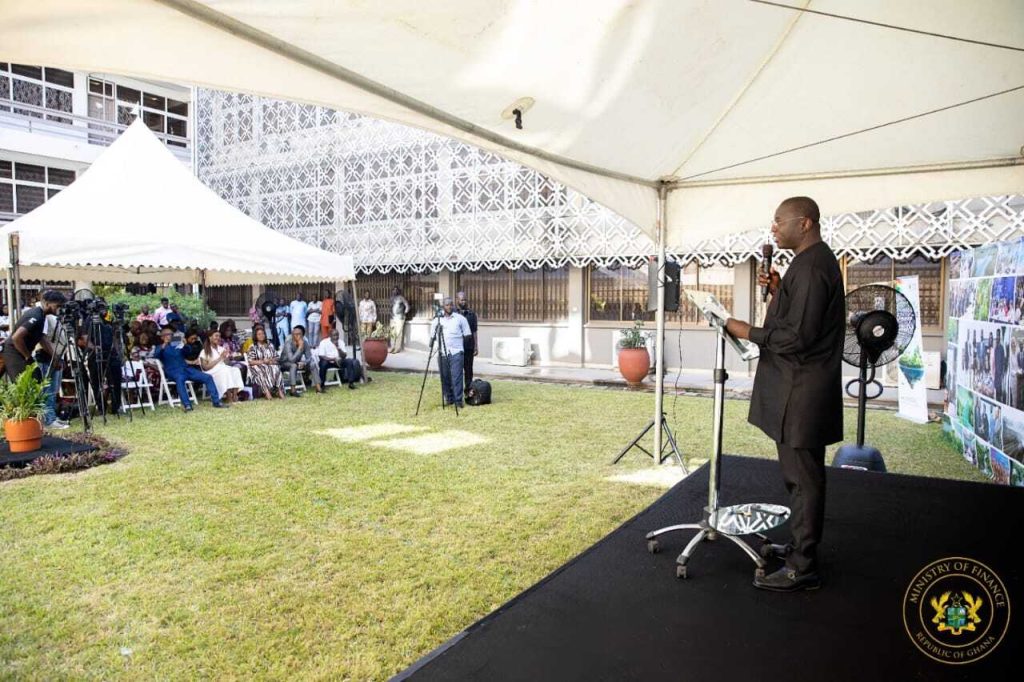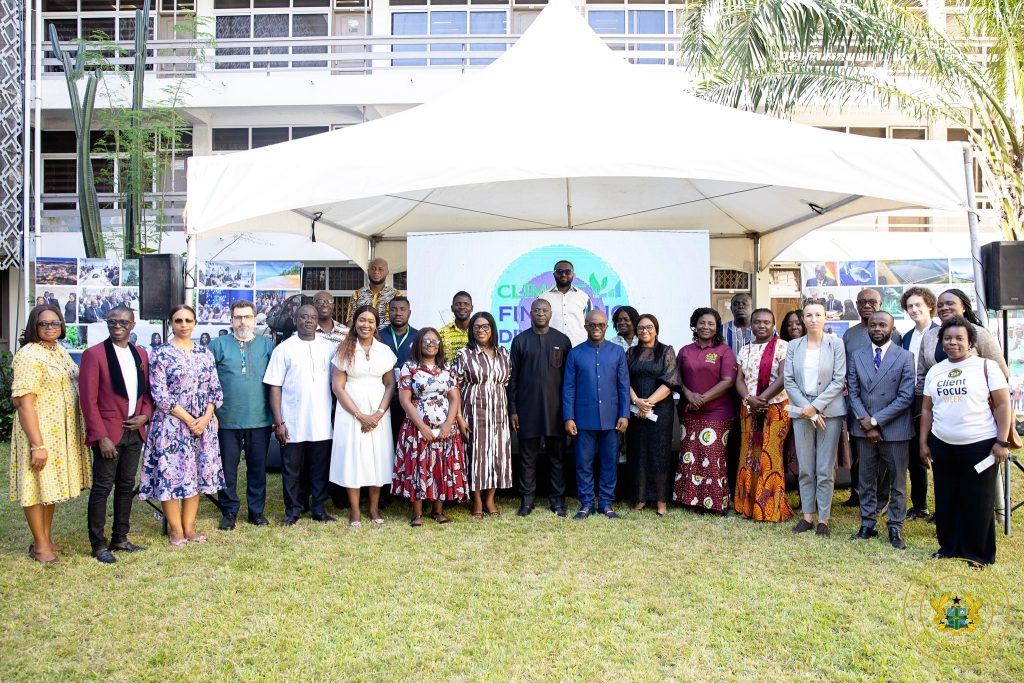By Francis Ntow
Accra, Oct 23, GNA – The Finance Ministry has launched a Climate Financing Division to heighten Ghana’s effort in attracting the needed finance into projects and programmes for climate mitigation and adaption.
Launched over the weekend, the Division would work to close Ghana’s US$15 billion financing gap while ensuring that funds are used to effectively blend economic management with ecological stewardship.
Speaking at the event, Dr Mohammed Amin Adam, Finance Minister, said the creation of the Climate Financing Division, marked a significant step towards a sustainable and resilient economy.
“Ghana’s Nationally Determined Contributions, our reference programme for climate action, require an estimated funding of US$9.3 to US$15.5 billion over the next decade. Clearly, these facts reveal the direction of travel and the depth of need,” he said.
That, the Minister said had led to the operationalisation of the Climate Financing Division, as the single and central point within the Ministry to effectively coordinate and co-lead the country’s march into the future.
“This Division will elevate our climate finance initiatives, enabling us to attract international funding, partner with domestic and external private sector investors, and implement projects that promote green growth,” Dr Amin Adam stated.
He noted that as financing conditions continued to be tight globally amid future uncertainty, the initiative would position the country better to have an innovative financing module to meet its financing needs and tackling climate change.

The Minister said the Ministry would champion government-to-government import deals, optimise export credit envelopes, catalyse concessional financing for renewable power programmes, and climate debt swaps as ways of attracting financing for the country’s climate adaptation and mitigation drives.
He was confident that by attracting more financing and investing the same into climate adaptation and mitigation, Ghana would build an ecosystem towards climate resilient growth, and position it as climate financing hub in Africa.
Ms Eva Mends, Chief Director, Ministry of Finance, stated that the new Division would reposition the country to respond to climate change effects through mobilising critical financial resources for projects and programmes.
She noted that such repositioning had become necessary with the successful completion of the country’s debt exchange programme and the need to increase efforts towards Ghana’s transition into a climate resilient economy.
This Division will not only be a symbol of our commitment to building a climate-resilient economy but also a practical instrument to drive positive change and facilitate Green Growth, and entrepreneurship.
“With the combined efforts of the Ministry of Finance, our partners, and stakeholders, we can create a future where climate finance and sustainable development are complimentary in our national development aspiration,” Ms Mends said.

Ms Eyerusalem Fasika, the African Development Bank (AfDB) Country Director for Ghana, lauded Ghana for setting up the division.
She stated that the move demonstrated the country’s commitment towards combating climate change, which would open it up to various investment funds available at the Bank and on international platforms.
Magdalena Liston Johnson of the United Kingdom (UK) Foreign, Commonwealth and Development Office (FCDO), also stated that the establishment of the Division showed Ghana’s readiness to receiving critical funds.
She expressed optimism that the operationalisation of the Division would be helpful in implementing projects and actions and facilitate collaboration for climate adaptation and mitigation.
GNA